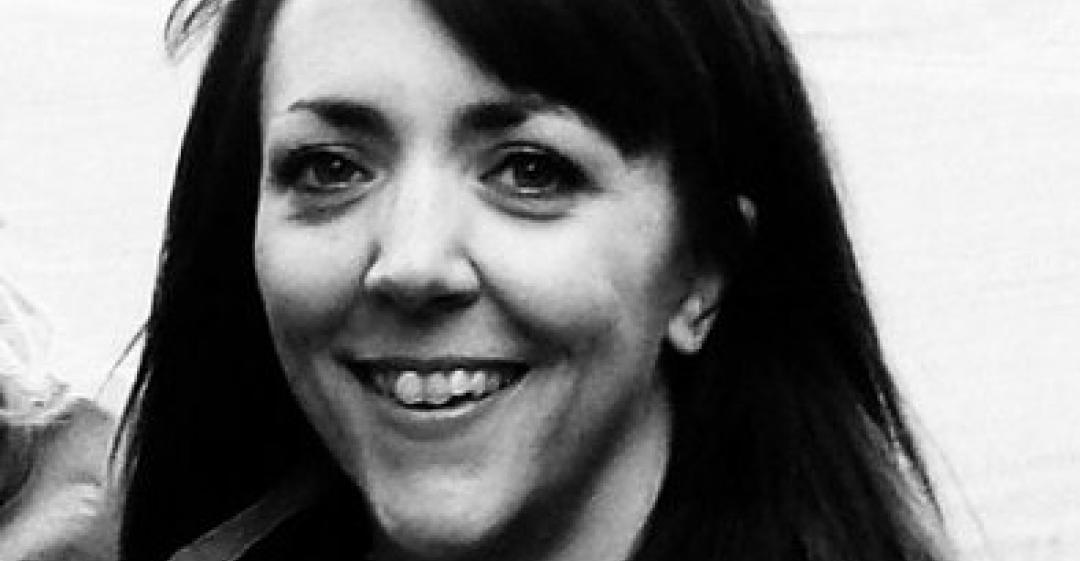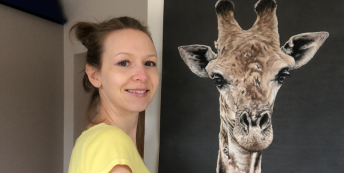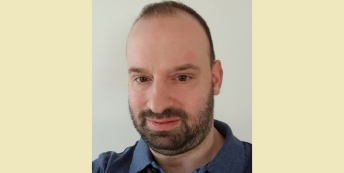“I had got to the point where I was dreading going into work, I was stressed out, and teetering dangerously close to burnout.”

What was your role in your old job?
I was a cognitive-behavioural therapist delivering group therapy sessions to life sentenced prisoners.
I also spent my time assessing prisoners' suitability for treatment, psychometric testing, and writing reports on prisoners' progress during therapy.
What are you doing now?
I work in Interior Design.
My role includes assisting customers who come into the showroom with their needs, taking client briefs, creating moodboards, and hand-drawing bathroom, kitchen or bedroom designs for clients.
As I am still learning at the moment I am shadowing my boss who is taking me through the design process as it develops with certain clients — what to do when you go out to site with the fitters and what to do in your site meeting with the electrician/plumber. Overall, a very different setting to that of prison!
Why did you change?
I just wasn't happy doing what I was doing.
I had got to the point where I was dreading going into work, I was stressed out, and teetering dangerously close to burnout. I knew that something had to give. I didn't want to do a job that had the potential to make me feel like that, so I started to doubt whether it really was for me and began to explore other options.
Are you happy with the change?
Yes, I am much happier now than I was two years ago, though there are aspects of my old job that I miss.
What do you miss and what don't you miss?
I miss being able to truly help people to change themselves and their lives for the better. Knowing that I had helped someone to understand their offending behaviour and reduced the risk they pose to society was my main motivation.
I don't miss the heavy workload. I was delivering a lot of therapy sessions without much of a break between treatment programmes. This ultimately took its toll.
I also don't miss how emotionally draining my job was. I love being able to come home at the end of the day and leave my work where it should belong.
How did you go about making the change?
I initially started by taking personality assessments and downloading help sheets to help get me thinking about what I wanted to do, my personality and my strengths.
Once I had decided on a few options I began to explore them and narrow down my options. I quit my job with HM Prison Service and did temporary work for about six months. By this point I had already enrolled on my Diploma in Interior Design, so it was just a case of earning some money until it started.
What was the most difficult thing about changing?
The most difficult thing was actually making the change and enrolling myself onto my Diploma — to leave everything I had known for the last three years behind and jump into something completely new and unknown was pretty scary!
What help did you get?
I had help from a career counsellor/coach who initially suggested moving into something new. I also had a chat to a career coach when I was bit further along in the decision-making process. I talked through my decisions with my friends and family too, which was a great help.
What have you learnt in the process?
I've learnt a lot about myself — my real passions and interests, my strengths, what kind of work environment I thrive in, and just how unsuitable my old job was for me! I also learnt that if you want something badly enough, then you will find a way to achieve it.
What do you wish you'd done differently?
I wish I had taken a little while longer to change career. As I disliked my old job so much I wonder whether going into interior design was a knee-jerk reaction to this dislike. If I had spent more time in temporary work until the stress of my old job had worn away, I wonder if I would have moved into another area of psychology instead. Who knows?
What would you advise others to do in the same situation?
Make the time to really get to know yourself: what kind of things interest you, what makes you come alive, what you love to be doing. Also get to know what kind of work environment you thrive in: do you like to have structure and targets to work towards or do you like an informal setting?
I have found that after ten years in employment and a career change I know what I like and don’t like much better now than when I was eighteen.
You can find out more about Jess's career change and designs on her website.
What lessons could you take from Jess's story to use in your own career change? Let us know in the comments below.



